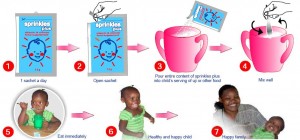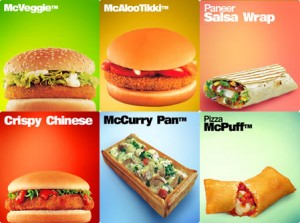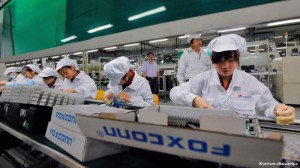A blog post by Ryan De Iaco on a new product called “Sprinkles” caught my eye. “Sprinkles” are small sachets of a powdered food fortification product that provide a daily dosage of minerals and vitamins. The powder can conveniently be sprinkled onto and dissolved into any food without altering its taste or texture. The blend of micro-nutrients is being touted as an inexpensive remedy for vitamin and mineral deficiency; the product has so far been distributed to 15 million children in developing countries with the main goal of eradicating iron deficiencies in children around the globe.
I admire the efforts of Dr. Stanley Zlotkin, the developer of “Sprinkles,” and agree with Ryan that he is the epitome of a social entrepreneur. Yet while the concept of “Sprinkles” is extremely exciting, I’m a little skeptical that the product will solve world malnutrition and “serve the needs of every starving child.” Yes, it may decrease worldwide anemia rates if distribution expands, but I think it unlikely that this one product will have a tremendous impact on the global problems of malnutrition and starvation. Nevertheless, I will be rooting for Zlotkin and his noble quest to provide a remedy for vitamin and mineral deficiencies.
Find the original article here: http://bx.businessweek.com/social-entrepreneurship/view?url=http%3A%2F%2Fwww.socialenterprisebuzz.com%2F2012%2F10%2F17%2Fsprinkles-micronutrient-sachets-for-children%2F



